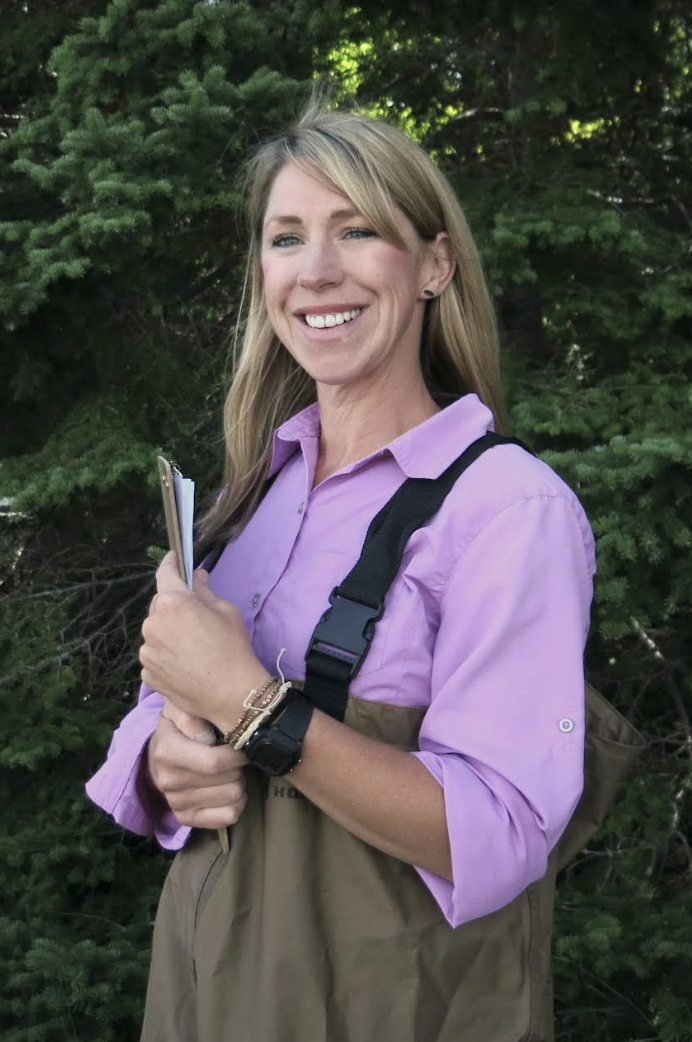Who Is Waterkeeper: Heather Smith, Grand Traverse Baykeeper
By: Thomas Hynes

Grand Traverse Bay sits at the northern end of Michigan’s lower peninsula. The embayment is known for its pristine blue waters that look almost turquoise or cerulean. Not surprisingly, the area is very popular with tourists and retirees. The Grand Traverse Bay watershed is mostly rural. Traverse City, and its 20,000 residents, is the area’s urban center. About 200,000 people live across the watershed. In the warmer months, those numbers double. All of those tourists create jobs and economic value for the area, but they also put tremendous pressure on the surrounding ecosystem.
Heather Smith is the Grand Traverse Baykeeper out of The Watershed Center Grand Traverse Bay in Traverse City. In many ways, she’s protecting the very thing all these tourists are coming to see. The clear waters, the peaceful woods, the calm and the quiet. That work can take the shape of working with local governments on protective policies, advocating for decisions that protect water, coordinating volunteers, monitoring in the field, and being a resource for concerned community members. Ultimately, it is all about speaking up for the environment and protecting this incredible natural beauty.
“We are experiencing growth and prosperity, but we are ill equipped to handle it,” says Heather. “So we are trying to influence local decision making to have a better outcome for water.”
Like so many Waterkeepers, Heather can draw her love of water to childhood. When other Michigan families may have flocked to Cedar Point for its world-famous roller coasters, Heather’s family took to the waters, often on a sailboat and for weeks at a time. It unsurprisingly led to a love of aquatic ecology and environmental sciences. At Michigan State University, she studied biology and earned a postgraduate degree at the University of Wisconsin. It was in her studies of global environmental issues and specifically water scarcity that she realized how fortunate the Grand Traverse Bay watershed is to have a plethora of clean freshwater. It compelled her to protect it.
After school, Heather lived on the West Coast for a few years, but always yearned to return to the Great Lakes and protect the waters she has always loved so much. When the job of Grand Traverse Baykeeper became available, she was seven months pregnant. Nonetheless, she applied. In graduate school, Heather had met Cheryl Nenn of Milwaukee Riverkeeper and knew enough about the work and the organization to know that she wanted to be a part of it.
“When the Grand Traverse Baykeeper job came up, it was this split between advocacy, policy, volunteer coordination, environmental stewardship, and being on a boat,” says Heather. “It felt like it melded all the things that I was interested in doing into one job. I had to apply.”
Heather has been in this role since 2016. Tourism is one threat, but so too is what she calls ‘bringing the suburbs to the rural.’ This can mean cutting down trees at the water’s edge, laying down a lot of concrete for a patio, or using too much pesticide for that perfectly manicured lawn. The visiting suburbanites also bring with them the expectation of a municipal sewer line and know very little about septic systems.
They also deal with all the other things all communities deal with: adjusting to climate change, failing infrastructure, microplastics, stormwater, nutrients and toxins, erosion, invasive species, and emerging threats like PFAS.
The Grand Traverse Bay area also happens to provide ideal conditions for growing cherries, grapes, and other fruit. In the last few decades, vineyards have created a whole new type of tourism in the area. Since these types of crops don’t need to be tilled every year, it’s typically not as destructive or threatening to water quality as other types of agriculture.However, there is still a significant amount of food washing and processing involved in the region, which can create a lot of wastewater.
Another big part of Heather’s job is recruiting locals to take an active role in protecting Grand Traverse Bay. She helped launch a program of Watershed Warriors to encourage community members to send letters, speak at public meetings, and generally lend their voice for the cause. Heather knows how powerful community voices can be in advancing change. She also suspects these planning commissions may be tired of hearing from her all the time.
“When I walk into a public meeting, everybody knows I’m going to say something about trees or wetlands. But when you have a group of community members echoing that same message you can really get somewhere,” says Heather.